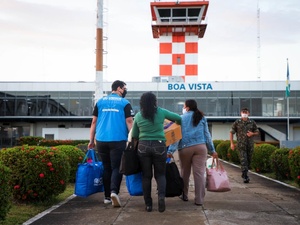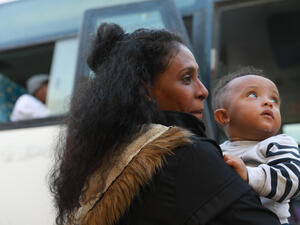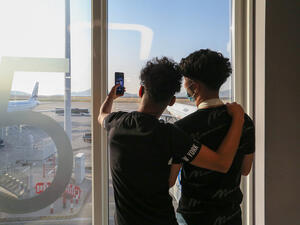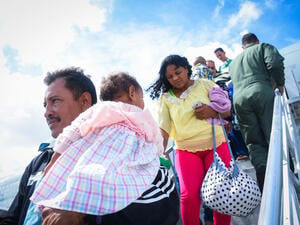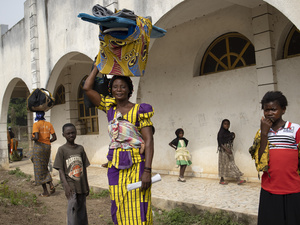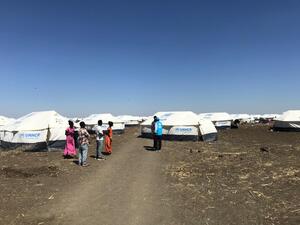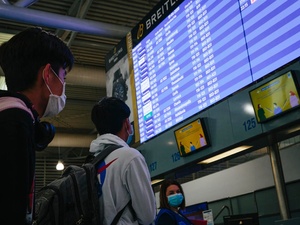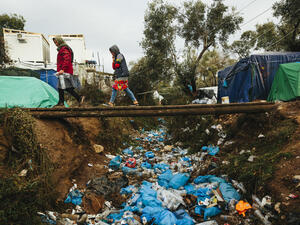Burundi: UNHCR begins relocation of newly arrived Congolese refugees
Burundi: UNHCR begins relocation of newly arrived Congolese refugees
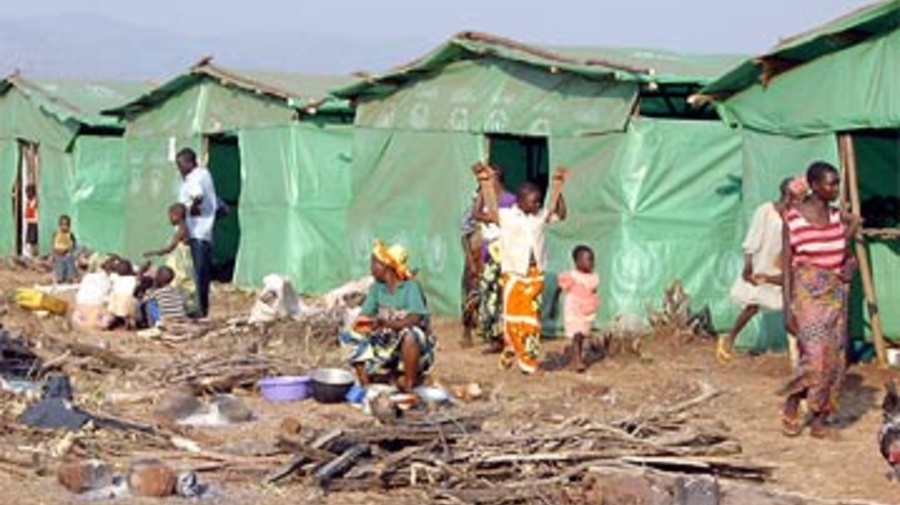
Recently arrived Congolese refugees at a transit centre in Burundi.
BUJUMBURA, Aug. 6 (UNHCR) - The UN refugee agency has begun relocating some of the 20,000 refugees who fled fighting in the South Kivu region of the Democratic Republic of the Congo (DRC) in June. They are currently crammed in three transit centres along Burundi's volatile Cibitoke border.
On Tuesday, 139 Congolese were transported from the transit centres to Gasorwe camp in Muyinga province in north-east Burundi, which already hosts some 8,000 refugees who fled the DRC in previous years. Earlier, 12 Congolese moved to Gasorwe from Cibitoke.
A recently concluded verification exercise put the number of newly arrived DRC refugees in the transit centres at 19,429: 10,780 at Rugombo, 6,882 at Karurama, and 1,767 at Gatumba. Previous estimates indicated that 34,000 Congolese had arrived in Burundi since June.
"We are relocating the bulk of these new arrivals to a better and safer location away from the DRC border once we have agreed with the Burundi government on a suitable site," said UNHCR spokeswoman Jennifer Pagonis at a briefing in Geneva.
Some refugees have returned home since the initial influx. In recent weeks, new arrivals from the DRC have slowed to a trickle.
On Saturday, the DRC's minister for social affairs, Ingele Ifoto, led a 16-member delegation from Kinshasa that visited the three transit centres. Speaking to the refugees, he emphasized the need for them to return home, help rebuild the country and take part in upcoming elections.
Pagonis said UNHCR is not promoting organized return of the DRC refugees. "We do not consider the situation conducive for return or that such a return is sustainable now."
The refugee agency is also urging the Burundian government to keep the border open so that refugees can return if they want to and also to allow any Congolese to seek refuge in Burundi if they feel the need for it. Over the past few weeks, border crossings have been subject to intermittent closures for security reasons.
There are two main border crossing points - at Rubenga and Rukana - both along the Ruzizi river. The Rubenga crossing, where there is a small fleet of ferry canoes (pirogues), is currently open.
UNHCR monitors say Rubenga crossing is not at all busy, with an average of around a dozen people crossing each day, mostly traders doing business at Rugombo market. The other crossing at Rukana is closed due to the current absence of a pirogue service. The local administration is looking at ways of bringing a pirogue service to Rukana.


